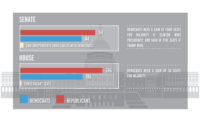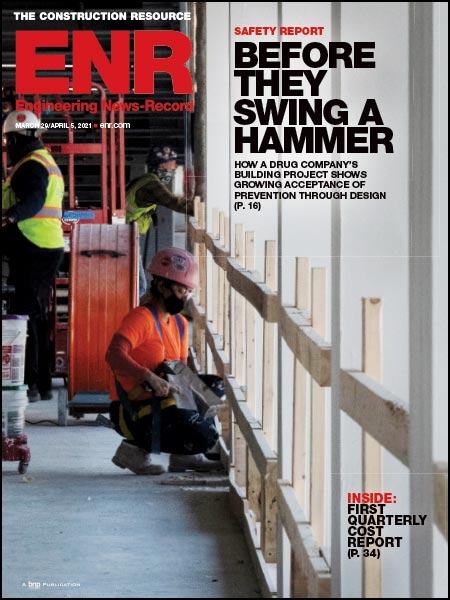The National Labor Relations Board has proposed changes that would speed up elections that determine whether workers in construction and other industries will be represented by unions.
As with other recent NLRB moves, reaction to the proposal, which the board announced on June 21, was sharply divided, with pro-union congressional Democrats supporting the move and business groups and Republicans criticizing it.
The proposal would for the first time allow electronic filing of election petitions and other documents and shorten the time employers have to produce lists of those eligible to vote in representation elections.
It also would require companies and unions to identify issues soon after an election petition is submitted, which, the board said, would ease resolution of those pre-election issues and “eliminate unnecessary litigation.”
Under the proposal, NLRB pre-election hearings would begin seven days after a hearing notice is served, unless there are “special circumstances.” In addition, post-election hearings would take place 14 days after ballots are tallied “or as soon thereafter as practicable.” At present, scheduling of pre-election and post-election hearings varies by NLRB region, the board said.
In addition, NLRB is proposing to have companies produce—where possible—an electronic list of eligible voters two work days after an election is directed to be held. Under current rules, companies have seven days to file a paper list of eligible voters.
The board will take comments on the proposed rule for 60 days and also plans a public hearing on July 18.
NLRB Chairman Wilma B. Liebman noted that the time between the filing of an election petition and the election date has been reduced over the years. “But the current rules still seem to build in unnecessary delays, to encourage wasteful litigation, to reflect old-fashioned communication technologies and to allow haphazard case-processing , by not adopting best practices,” she added.
Liebman and the NLRB’s other two Democrats endorsed the decision to propose the rule, but the board’s sole Republican member, Brian Hayes, issued a strong dissent.
Hayes said that less than 10% of union representation cases involve contested issues before elections. He added, “Without any attempt to identify particular problems in cases where the process has failed, the [NLRB] majority has announced its intent to provide a more expeditious pre-election process and a more limited post-election process that tilts heavily against employers’ rights to engage in legitimate free speech and to petition the government for redress.”
AFL-CIO President Richard Trumka gave the proposal muted praise, calling it a “modest step to remove roadblocks and reduce unnecessary and costly litigation.” Key congressional Democrats, including Senate Majority Leader Harry Reid (Nev.) and Health, Education, Labor and Pensions Committee Chairman Tom Harkin (Iowa) welcomed the NLRB action.
But business groups blasted the NLRB proposal as well as a proposal that the Dept. of Labor announced on June 20 that would broaden labor relations consultants’ activities requiring formal disclosure to the department.
Geoff Burr, Associated Builders and Contractors vice president of federal affairs, said, “These proposed rules are clearly an attempt by unelected bureaucrats at the Dept. of Labor and the National Labor Relations Board to advance Big Labor’s agenda at the expense of American job creators.”
The U.S. Chamber of Commerce also slammed the NLRB and Labor Dept. proposals. Randy Johnson, the chamber’s senior vice president for labor, immigration and employee benefits, termed the NLRB action “another not-so-cleverly disguised effort to restrict the ability of employers to express their views during an election campaign, to inform employees of the pros and cons of unionization.”
The Senate Health, Education, Labor and Pensions Committee’s top GOP member, Mike Enzi (Wyo.), said the NLRB’s proposed changes “amount to nothing more than a gift to organized labor....If employees want to unionize they should be allowed to do so, but to ram elections through before important questions are asked and answered does a disservice to everyone involved.”
The latest news and information
#1 Source for Construction News, Data, Rankings, Analysis, and Commentary
JOIN ENR UNLIMITEDCopyright ©2024. All Rights Reserved BNP Media.
Design, CMS, Hosting & Web Development :: ePublishing




Post a comment to this article
Report Abusive Comment